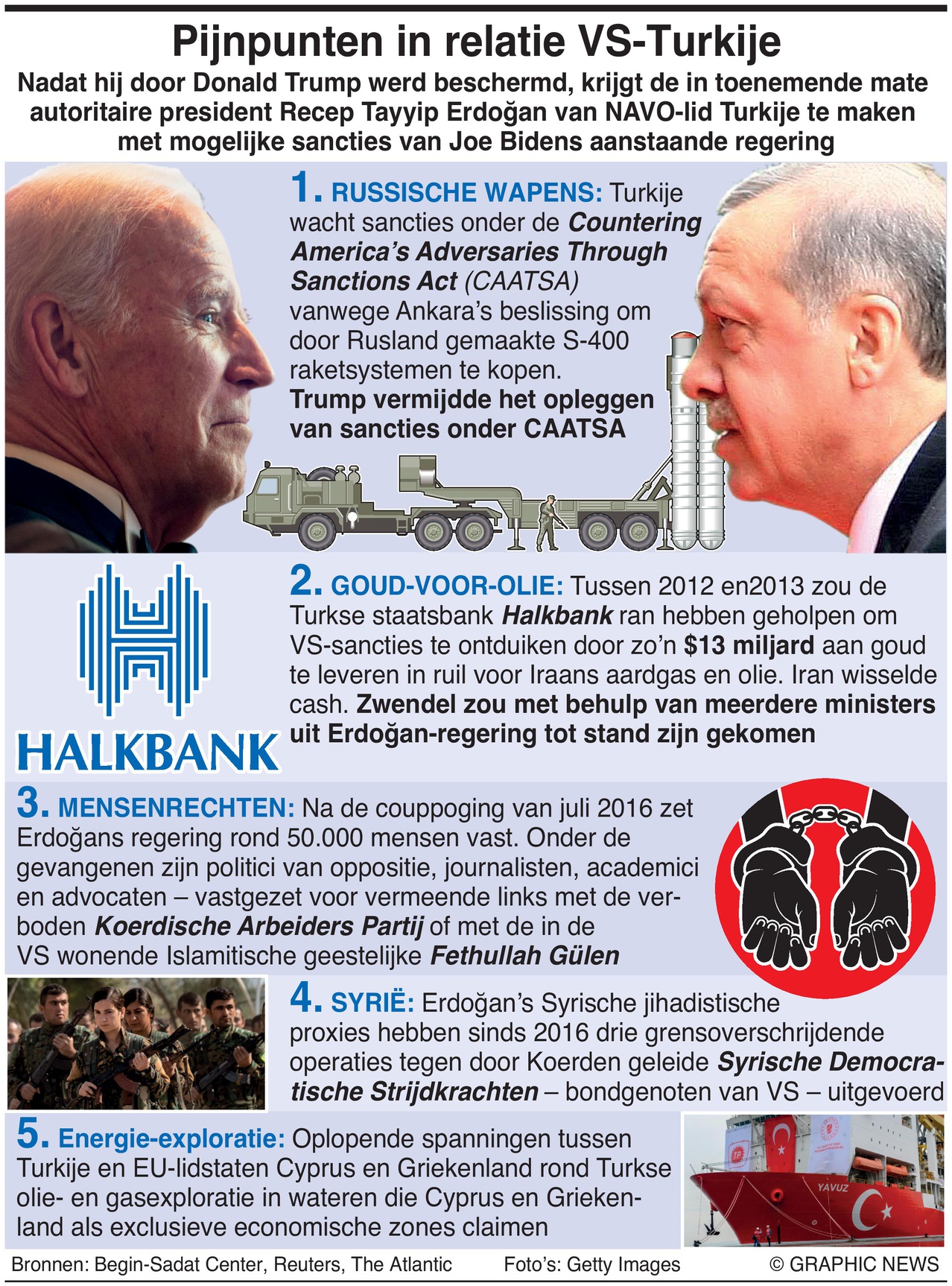Pijnpunten in relatie VS-Turkije
BY DUNCAN MIL
After being protected by Donald Trump, NATO ally Turkey’s increasingly authoritarian President Recep Tayyip Erdoğan faces potential U.S. sanctions from Joe Biden’s incoming administration.
The partnership between Washington and NATO ally Ankara has gone through unprecedented tumult in the past five years over Turkey buying Russian-made S-400 missiles and Ankara’s closer ties with Moscow, disagreements on Syria policy, its oil and gas exploration in Greek and Cypriot waters in the eastern Mediterranean, U.S. charges against state-owned Turkish Halkbank and the erosion of human rights in Turkey.
The most severe issue remains the potential for penalties under the Countering America’s Adversaries Through Sanctions Act (CAATSA) for Turkey’s purchase of the Russian missiles.
CAATSA sanctions include a range of options — from denials of visas of Turkish officials and the prohibition of export licenses to harsher measures such as the blocking of any transactions with the U.S. financial system.
But the Trump administration avoided imposing severe sanctions under CAATSA. Instead, Washington halted the delivery of 100 F-35s that Ankara was set to purchase, and suspended it from the programme.
Following the July 2016 coup attempt, Erdoğan’s government imprisoned around 50,000 people. Among them are opposition politicians, journalists, academics and lawyers — targeted for alleged links to the outlawed Kurdistan Workers’ Party or U.S.-based Islamist cleric Fethullah Gülen.
Turkey and EU members Cyprus and Greece are locked in escalating tensions over Turkish oil and gas exploration in waters claimed as Cypriot and Greek exclusive economic zones. In December, EU leaders will discuss possible sanctions on Ankara.




